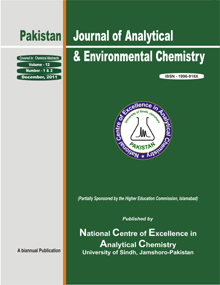Evaluation of Influencing Factors and Potential Ecological Risks by Accumulation of Heavy Elements in Agricultural Soil Samples, Wadi Turabah (KSA)
DOI:
https://doi.org/10.21743/pjaec/2025.06.08Keywords:
Heavy elements, Agricultural soil samples, Agrochemicals, Pollution indicators, Influencing factorsAbstract
Several studies have proven that heavy elements (HEs) are environmental pollutants that threaten human health and the natural environment. They affect soil quality and can be transmitted to the human body while eating foods contaminated with HEs. Intensive agriculture leads to the accumulation of fertilizer and pesticide compounds due to the excessive use of agrochemicals (ACs) to achieve better yields. However, their use leads to the loss of the authenticity of food sources with bioaccumulation of HEs. This study first aimed to determine the effect of ACs on agricultural soil samples (ASs), then, to evaluate the degree of pollution and the risks posed by HEs to the soil due to the use of ACs and other human activities. These assumptions were verified by analyzing ASs collected from specific farms in Wadi Turabah and testing them for Pb, As, and Al contents. These were proven by evaluating some pollution indicators and influencing factors such as pollution load index (PLI), geographic accumulation index (Igeo.), and contamination factor (CFi). In addition to, the potential ecological risk index (Ei) and potential ecological risk intensity (RI). The concentrations of Pb, As, and Al in ASs varied between 0.018–0.079, 0.028–0.132, and 1.229–2.270 mg.kg-1, respectively. Estimated environmental risk values indicated that the ASs were moderately contaminated by Al, with low and acceptable risks due to As and Pb, respectively. Considering the strength and severity of the toxic effect of HEs in ASs study areas, it was classified as moderate. The results of this study can be applied in taking the necessary measurements to reduce the use of ACs that may lead to environmental risk due to HEs contamination.
Downloads
Downloads
Published
Issue
Section
License
Copyright (c) 2025 Pakistan Journal of Analytical & Environmental Chemistry

This work is licensed under a Creative Commons Attribution-NonCommercial-ShareAlike 4.0 International License.






